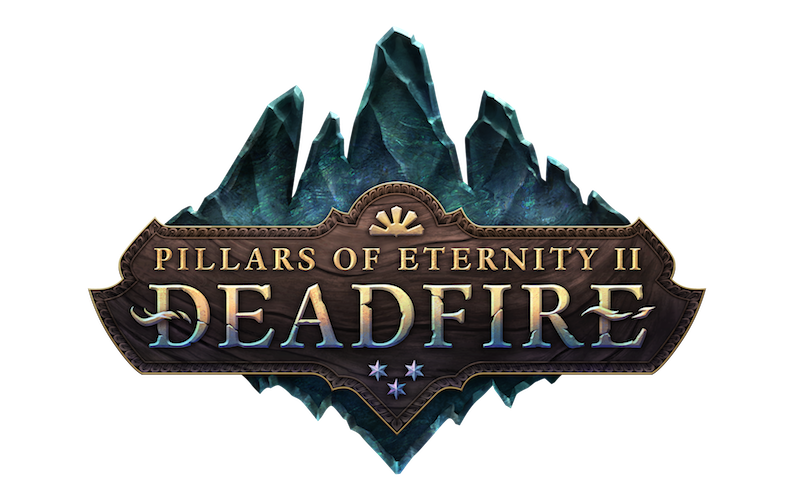
Pillars of Eternity 2: Deadfire is an RPG by developer Obsidian Entertainment and publisher Versus Evil. As you can guess from the name, this game is a sequel and as such if you haven’t played the first game (like me) then some elements of the story will be confusing. Since I haven’t played the original, I will judge this game by its own merits rather than how it compares to the first game. I also feel obligated to mention that I never actually finished Pillars of Eternity 2. I played for about 10 hours on one character before I was forced to make another character. The issue was that the game mentioned free dlc one time I opened it up and I chose not to download it only to discover that 1) I couldn’t play on my 1st character without the dlc and 2) that I couldn’t find the dlc in the steam marketplace. Luckily, I could still make a new character without the dlc, so I chose to do that. By the time the free dlc WAS available on the marketplace, I had already caught my 2nd character up to the point where my 1st character was, so I decided to continue playing as my 2nd character. Between the two characters, I had played for over 40 hours and I was quickly approaching my deadline for this review by that point. I would like to think that after getting 30 hours into the game with my 2nd character I had seen everything the game had to offer by that point, but it is (somewhat) possible that I missed some key feature.
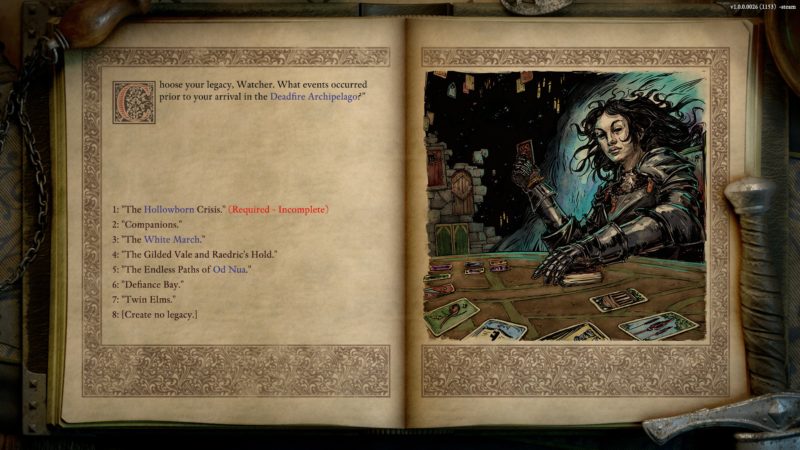
As this game is a sequel, it allows you to either load the choices from one of your files from the first game (provided you have the first game), to choose from one of 6 histories for the game created by the developers, or to create your own custom history. Creating your own custom history can be done from the options menu and requires that the choices concerning the main story be filled out before the custom history can be used. This game takes place in a different part of the world than the first game, and as such—from what I could see during my time with the game—your choices in the first game mainly only have an impact on the returning characters.
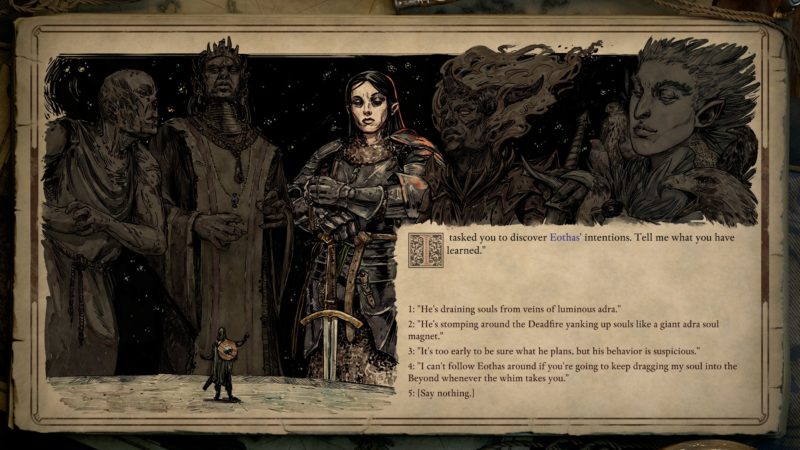
The game has moments that resemble a text-based game during what would be an action sequence in another game. Ship-to-ship battles are included in this. During these sequences, you could make choices which would usually result in gaining an item, gaining access to a new area, gaining an injury on one of your characters, or absolutely nothing at all (this last one usually only happened during a sequence that involved a puzzle).
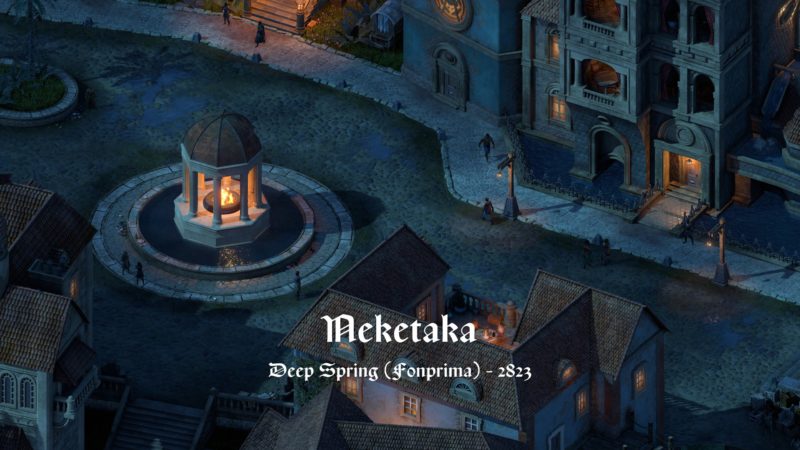
Like many RPGs before it, the game allows you to pause and issue out orders to party members mid battle. On the classic difficulty setting I needed to occasionally rely on this, although usually I could make it through fights only controlling my character. The default party A.I. is good enough that you usually don’t need to constantly supervise the other party members on classic difficulty (whether that holds true for higher difficulties, I have no idea). You can also customize the A.I. of each party member—though I stayed away from this because the default party A.I. worked just fine for me, so I can’t verify the degree to which the party A.I. can be customized.
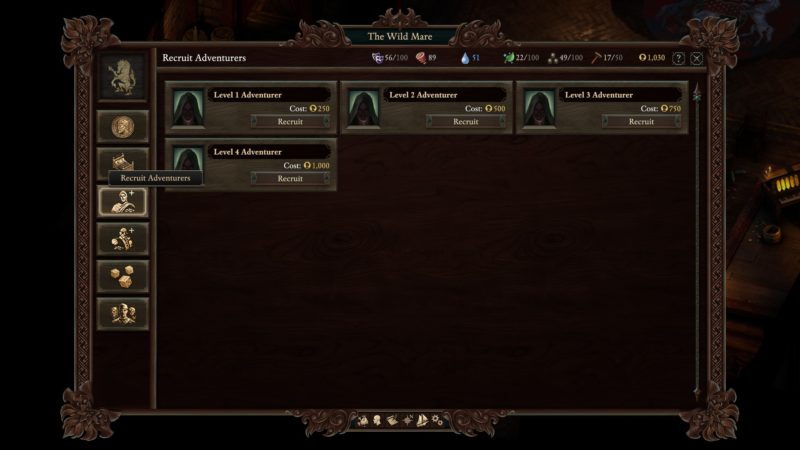
Whenever someone in your party falls during combat, they will gain an injury. If your character gets 3 or 4 injuries, you will get a game-over and be forced back to the last time you saved. If any other party member passes the limit on number of injuries, the party member will die and you will be unable to use that party member again unless you reload to a point in your game where they hadn’t passed the limit on number of injuries.
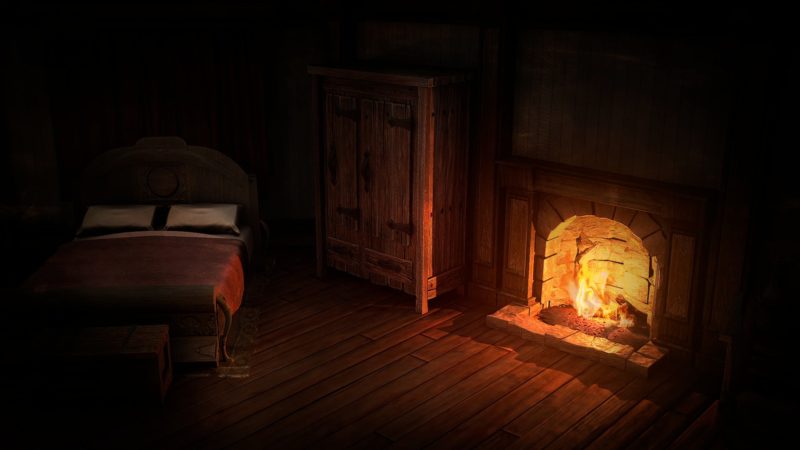
To ensure you don’t end up on your lonesome in the event you get all of your party members killed, the game allows you to hire adventurers. This will take you to the character creation screen where you can customize your own party member to take with you. As this is hiring an adventurer, it will cost your character gold to hire them, and the higher their starting level, the more gold it will cost. I found this an excellent mechanic to help players that had lost the party members that worked well with their character’s class. It is even possible to have a party full of custom characters and leave your other party members behind, but I would not recommend this. The hired companions are nothing more than hired muscle—they will help you out during combat but regardless of whether you are the kindest hero or the most despicable villain, they won’t offer up a response of any kind.
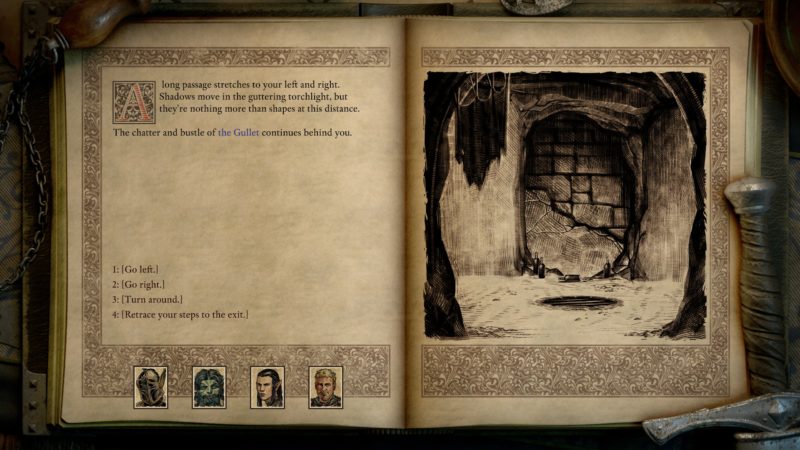
In this RPG, choices you make during the main quest—and on side quests—will impact how various groups and individuals respond to you. A group/individual that sees you in a positive light will be more likely to offer assistance or give up a secret while a group/individual that hates you is more likely to respond violently. Among the individuals who can have opinions of you are your non-customizable party members. While a companion affection system in an RPG isn’t anything new, it does do something with it that I have never seen before.
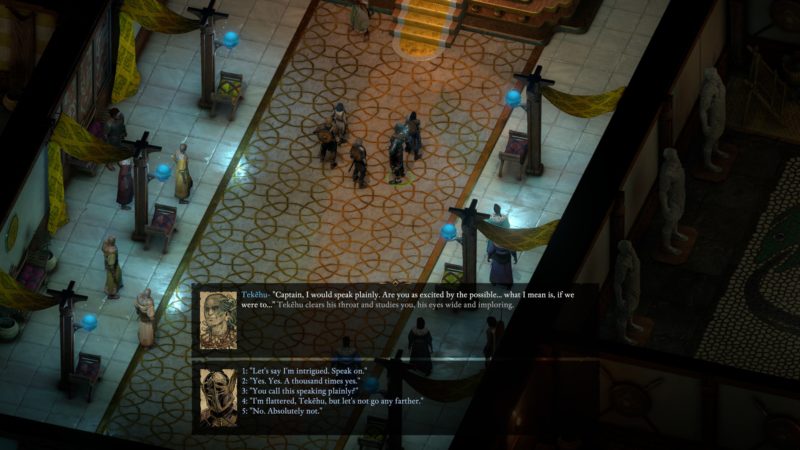
As you progress through the main quest and side quests, sometimes the party members will join the conversation with their own thoughts. When this happens, the other companions nearby will build positive or negative affection towards them. To test this, I put two party members with vastly contrasting views together and at one point I was forced to stop and enter a conversation as the two got into an argument. I had the choice of staying silent, of trying to defuse the situation, or of goading them into trading blows. I chose to defuse the situation. Unfortunately, this was the only time I witnessed this mechanic have such a strong impact on what was going on. The rest of the time it amounted to nothing more than the companions silently judging each other. There was no second argument between the two party members and I never saw any other conversation between party members that forced me to stop and be an active participant. Also, I think that the companion affection system might have a few bugs in it because the companion affection meter would only sometimes register what I or the other party members said/did despite the game saying that my companion(s) noticed.
Now for the bug report. The only serious bug I noticed was in the character creation screen. When you moved from the race-select to the class-select, the game will not let you re-choose your character’s race, despite the fact that you are not done creating your character. What I found particularly annoying about this was the fact that the appearance editor was AFTER the class selection. Meaning if you didn’t like any of the facial options available for that race, then you would need to either start a new game or stick with the race you picked. I found that while the character creation screen for the hired adventurers suffered from the same problem, I could easily exit and re-enter their character creation screen (your character only gets charged gold after you complete the creation of your hired adventurer). Before I tried starting a new game with a new character, I used the hired adventure’s character creation system to more quickly check out the facial options for each race.
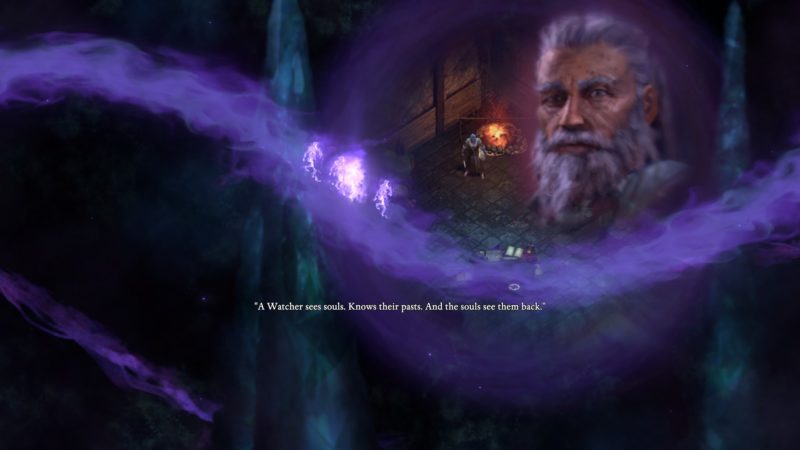
Overall, I had fun playing this game, although I found myself wishing that the companion affection system (both the affection system towards your character and the affection system for them to gain opinions of each other) was more developed. As such, I think a fair rating for this game is 8/10.
Check Out the Pillars of Eternity II: Deadfire Launch Trailer: (MATURE)
Pillars of Eternity II: Deadfire is available now on Windows PC, Mac, and Linux platforms via Steam, with a console version for PlayStation 4, Xbox One, and Nintendo Switch coming later in the year.
PC Review
-
Overall Score - 8/108/10
I am a recent Computer Science/Game Development Programming Chapman University Graduate. I am a life long enthusiast of computer/video gaming and my favorite game genres are adventure, choice-driven stories, fighting, and racing. My favorite game/movie series include but aren't limited to 'Legend of Zelda'; 'Dragon Age'; 'Persona'; 'Sonic the Hedgehog'; 'Mario'; 'Metroid' ;'Megaman'; 'Naruto'; 'Batman'; 'Spiderman'; 'Star Wars'; and 'Star Trek.'

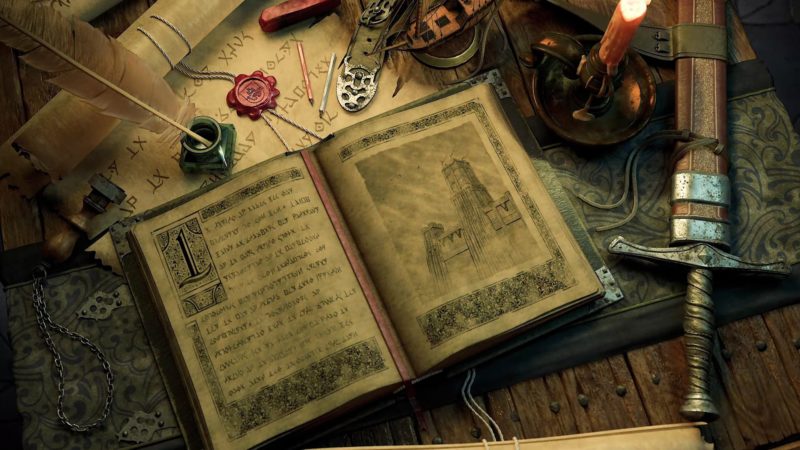
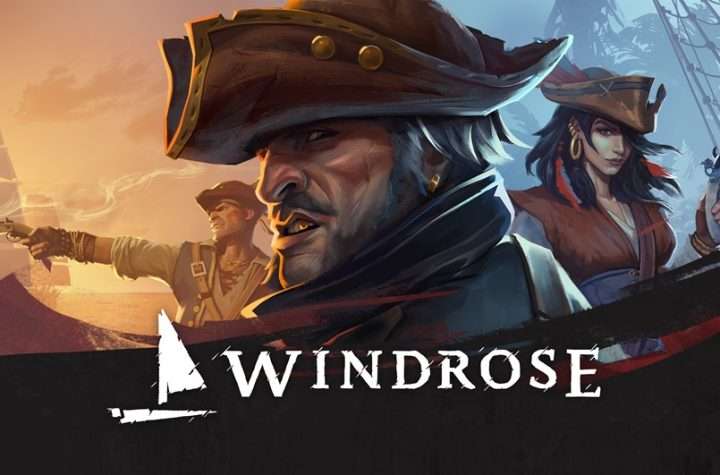
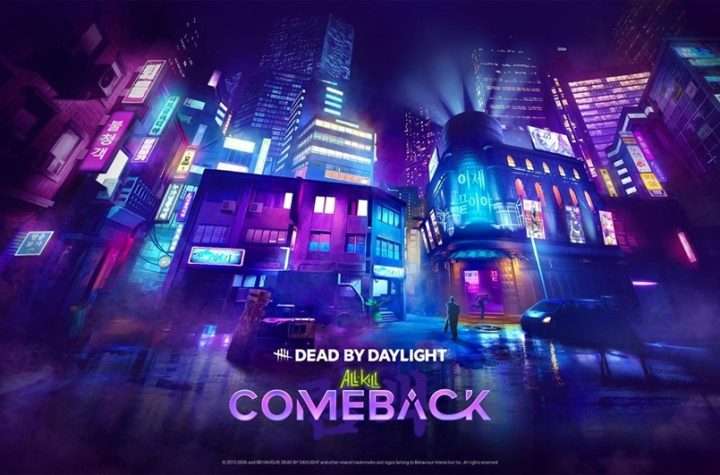
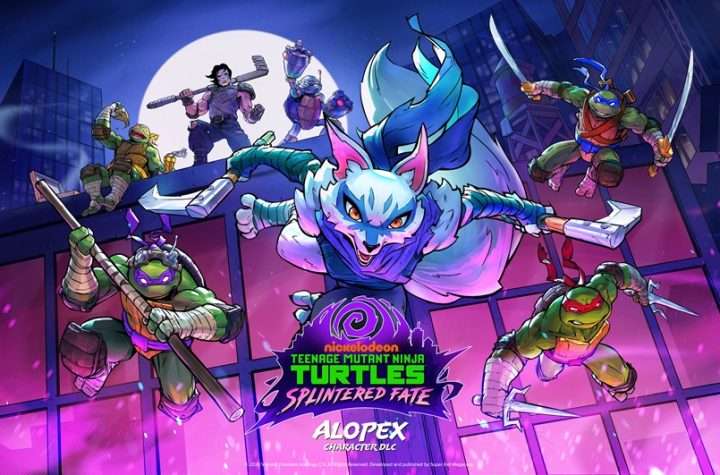
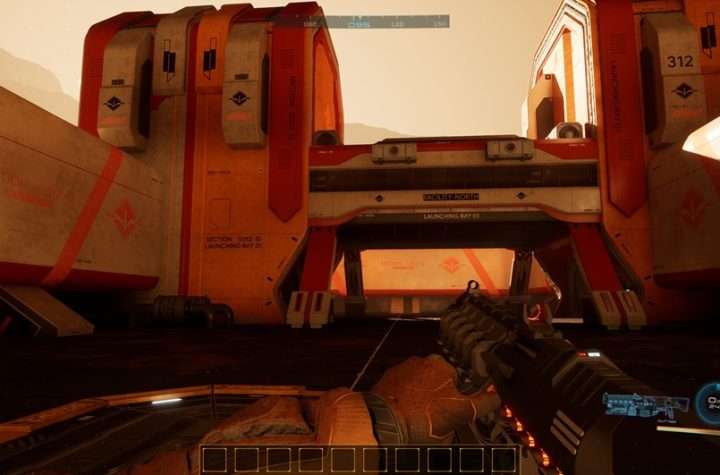
More Stories
WINDROSE Preview for Steam
Public Test Build for Dead by Daylight’s New All-Kill: Comeback Chapter Now Live
Teenage Mutant Ninja Turtles: Splintered Fate Launches New Alopex DLC